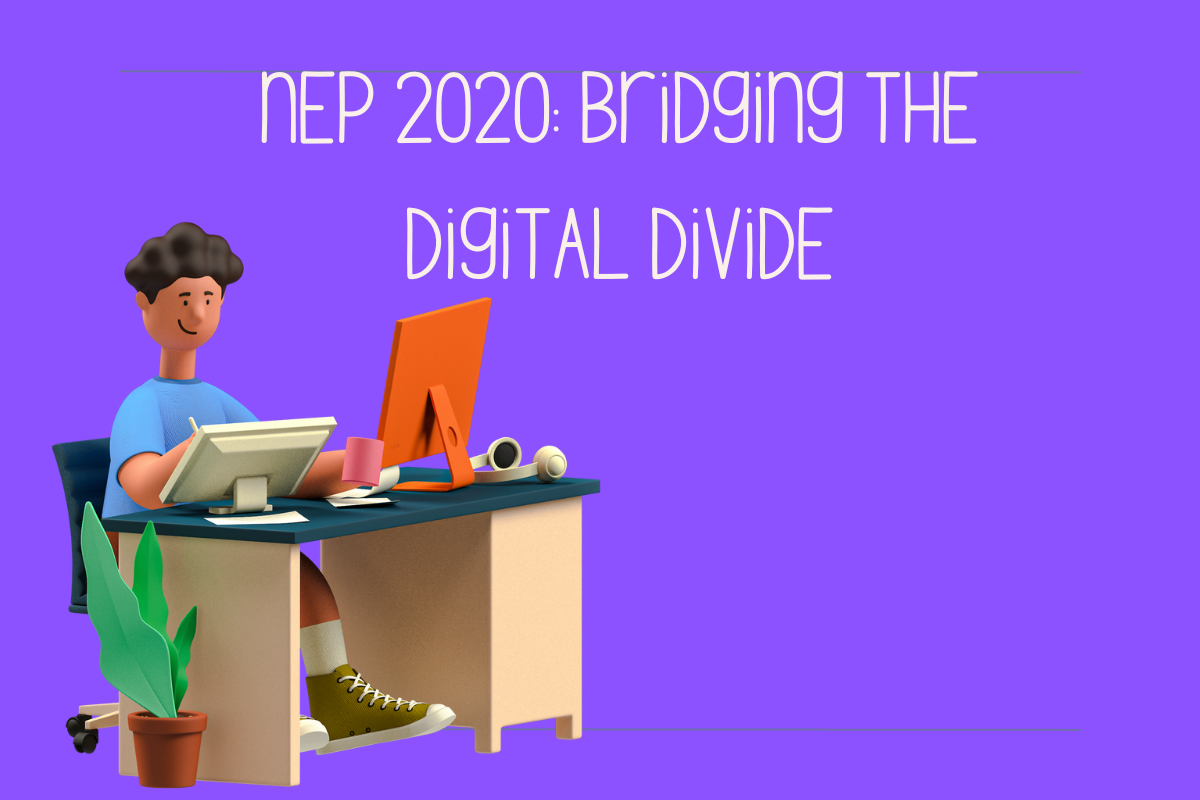NEP 2020: Bridging the Digital Divide
By~ Scholar Planet
Created At: 02 Jul, 2023

In an increasingly digital world,
access to quality education is no longer limited to physical classrooms and
textbooks. The National Education Policy (NEP) 2020 in India recognizes this
shift and aims to bridge the digital divide, ensuring that every student has
equal opportunities to thrive in the 21st century.
One of the key objectives of NEP
2020 is to provide universal access to digital resources and technologies. This
entails equipping schools and educational institutions with the necessary
infrastructure, such as computers, internet connectivity, and digital learning
platforms. By doing so, NEP 2020 aims to bring quality education to even the
most remote and marginalized communities.
The policy also emphasizes the
need to train teachers in effectively utilizing digital tools and technologies.
Teachers play a crucial role in facilitating digital learning experiences for
students. Therefore, the NEP emphasizes their professional development through
training programs that equip them with the skills and knowledge needed to
navigate the digital landscape. This ensures that teachers can adapt their
pedagogical methods to suit online learning environments, making education
accessible and engaging for all students.
NEP 2020 recognizes the
importance of digital literacy in the 21st century. It aims to integrate
digital literacy skills into the curriculum from an early age, ensuring that
students are equipped with the necessary digital skills to thrive in the modern
world. By incorporating digital literacy into the curriculum, students learn
not only how to use technology but also how to critically evaluate information,
collaborate online, and be responsible digital citizens.
To bridge the digital divide, NEP
2020 also emphasizes the use of Open Educational Resources (OER). These are
freely available learning materials that can be accessed online, providing a
cost-effective solution for students who may not have access to traditional
textbooks. OER ensures that quality educational content is accessible to all,
regardless of their economic background.
While NEP 2020 sets the
foundation for bridging the digital divide, its successful implementation
requires collaborative efforts from the government, educational institutions, and
technology providers. Public-private partnerships can play a vital role in
providing the necessary resources and infrastructure to schools in remote
areas.
In conclusion, NEP 2020
recognizes the transformative power of digital technologies in education and
aims to bridge the digital divide. By providing universal access to digital
resources, training teachers in digital pedagogy, promoting digital literacy,
and leveraging open educational resources, NEP 2020 paves the way for inclusive
and equitable education. Bridging the digital divide is not just about access
to technology but also about empowering students with the skills they need to
thrive in the digital era. With the implementation of NEP 2020, India is taking
significant steps toward achieving this goal and ensuring that no student is
left behind.
Keeping the guidelines of NEP
2020 in mind, we at Scholar Planet promise to provide quality learning at
affordable rates. We have also partnered with government, MCD and Kendriya
Vidyalaya schools aiming for inclusivity in learning.
Download
our app to know more: https://gcapworld.com/download-scholarplanet-app.html
